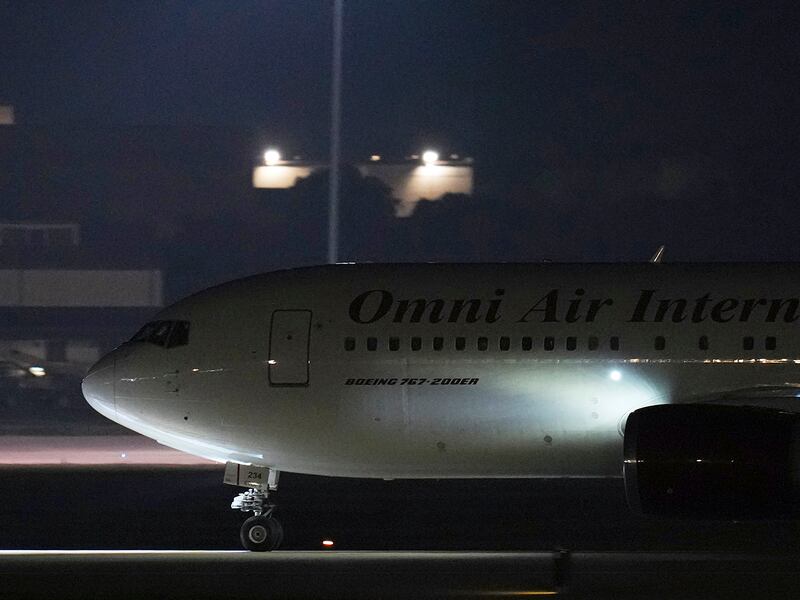Three Americans who Washington says were wrongfully imprisoned in China have landed back on U.S. soil as part of a rare prisoner swap with Beijing, in a move analysts said could signal China’s willingness to do further deals with the incoming Trump administration.
Mark Swidan, of Houston, Texas, Kai Li, of Long Island, New York, and John Leung, a permanent resident of Hong Kong, have been reunited with their families for the first time in years in time for Thanksgiving, Nov. 28 this year, ABC News reported.
Secretary of State Antony Blinken said he spoke to Li, Leung and Swidan while they were en route back home.
“I told them how glad I was that they were in good health and that they’ll soon be reunited with their loved ones,” Blinken said via his X account.
While the State Department didn’t reveal more details about the deal, Chinese foreign ministry spokesperson Mao Ning confirmed that three Chinese citizens had also been returned.
“Three Chinese citizens who were wrongly detained by the United States have returned to their motherland safely,” Mao told a regular news conference in Beijing on Thursday.
“China has always firmly opposed the U.S.’s suppression and persecution of Chinese citizens for political purposes and will, as always, take necessary measures to firmly safeguard the legitimate rights and interests of Chinese citizens,” she said.
Accused of spying
Reports named one of the Chinese nationals as Xu Yanjun, an official in the Chinese Ministry of State Security who became the first Chinese spy to be extradited to the United States following his arrest in Belgium in 2018.
A jury found Xu guilty in 2021 of attempting to steal designs for an engine fan from Ohio-based GE Aviation. Department of Justice officials said it was part of an organized effort by Beijing to “modernize” its own economy by stealing U.S. technology.

Another was identified as Ji Chaojun, a former graduate student was sentenced in Chicago to eight years in prison for spying for China in January 2023, according to multiple media reports.
Mao declined to identify the returned Chinese nationals, but said a “fugitive” from Chinese justice had also been returned to the custody of the Chinese authorities, warning that the ruling Communist Party would “continue to pursue fugitives ... to the end.”
Sending a signal?
Yang Haiying, a professor at Japan’s Shizuoka University, said such prisoner exchanges are rare for China, and could be intended to send a signal to the incoming Trump administration.
“Maybe China is trying to test Trump, whether he will want to do various kinds of deals with China in future,” Yang said, describing the swap as a form of “hostage trading.”
RELATED STORIES
US-China tensions weigh on Americans detained in Chinese jails
Too many Americans ‘unjustly’ jailed in China, lawmakers say
Chinese spy gets 20 years in US prison“
If that works, then maybe China and the United States can make bigger deals in future, including trade deals, political deals, and agreements on international issues like the South China Sea,” he said. “I think they are sending that signal.”
Current affairs commentator Guo Min said the swap was undoubtedly in Beijing’s interest at this time.
“China regards some of its people as so-called patriots for propaganda purposes, saying that the Chinese government has made great efforts to protect patriots and successfully returned them to China,” Guo said.
“Everything the Chinese government does is based on political considerations,” he said.
The U.S. State Department on Wednesday downgraded its travel advisory for China from Level 3 (reconsider travel) to Level 2 (exercise extreme caution).
The advisory now warns U.S. citizens of the possibility of “arbitrary enforcement of local laws” in mainland China, Macau and Hong Kong, with the possibility of exit bans in mainland China.
Translated by Luisetta Mudie. Edited by Malcolm Foster.
